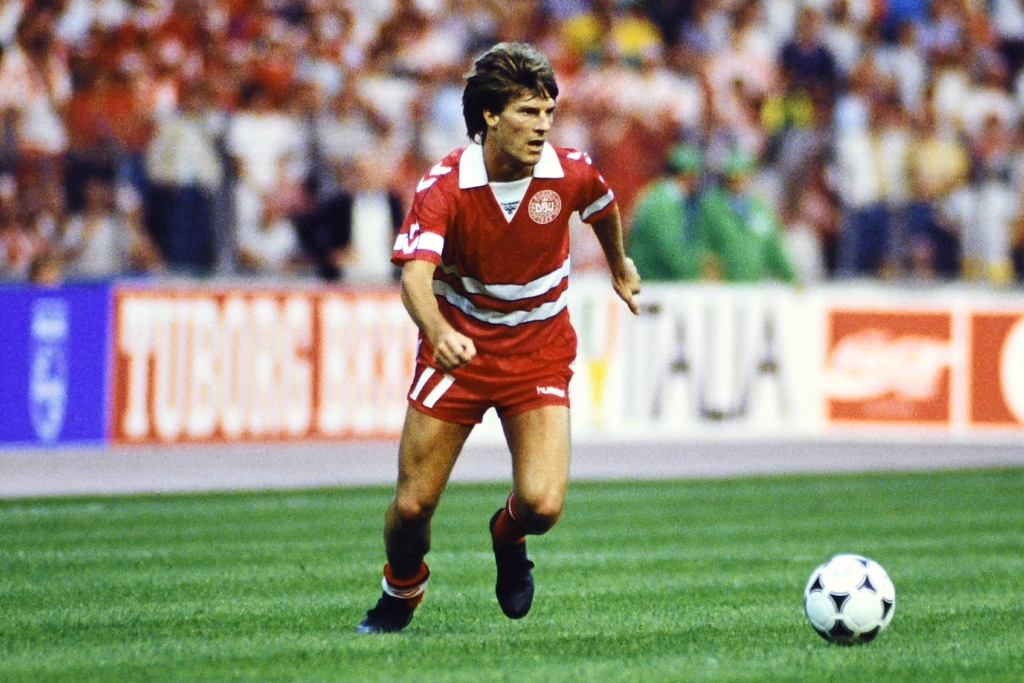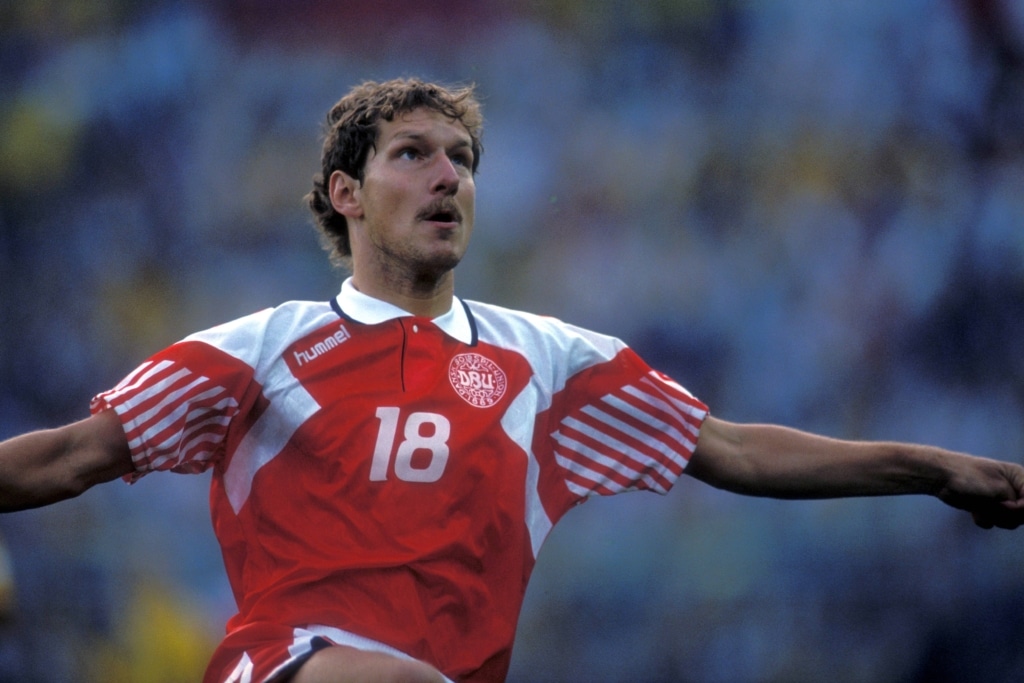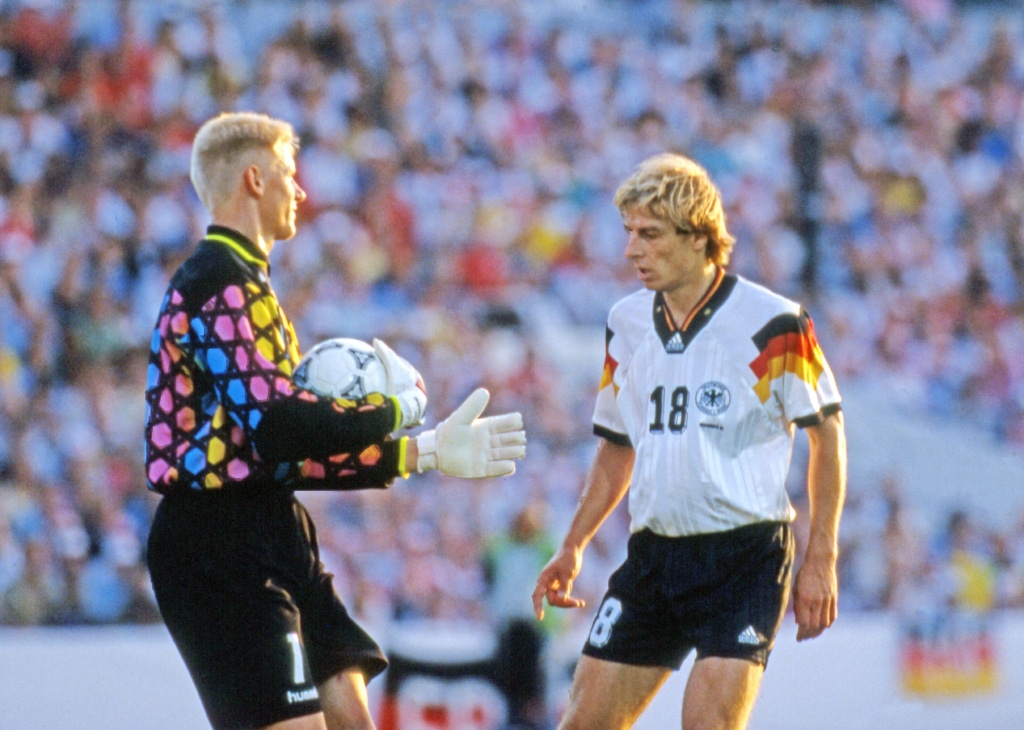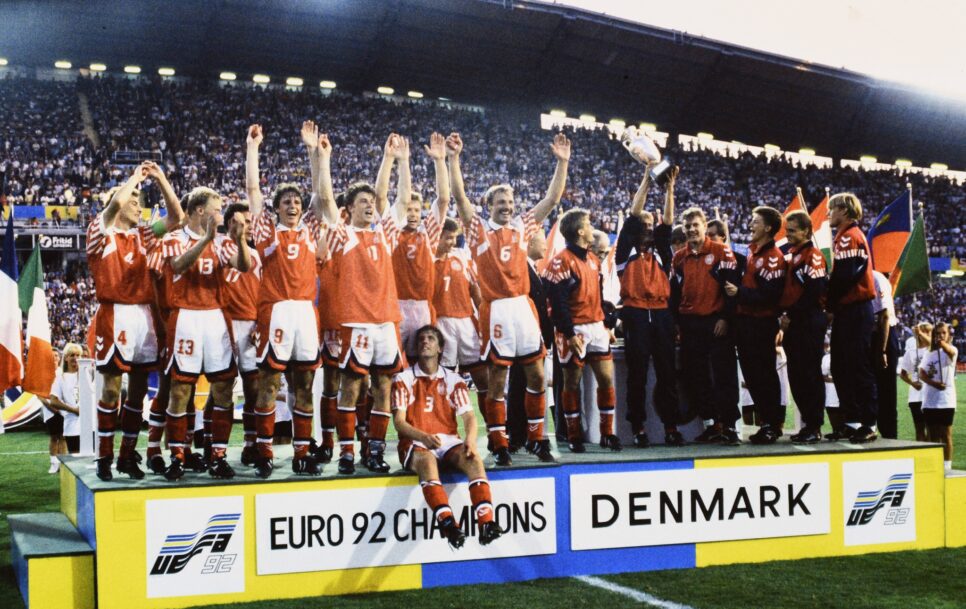Iconic EURO moment: the 1992 miracle of Danish Dynamite
In the 1980s, the Danish national football team earned the nickname Danish Dynamite, having reached the semi-finals of a European Championship, but they never managed to make a significant breakthrough. This all changed in 1992, when Denmark wasn’t even supposed to play in the Euros.
In the qualifiers that began two years earlier, the Danes stumbled at the second and third hurdles, putting themselves in a hole they couldn’t climb out of. First, Denmark drew 1-1 with Northern Ireland and then lost 0-2 to Yugoslavia in Copenhagen.
Tensions boiled over due to the embarrassing defeat, leading to a fallout between Denmark’s biggest star, Michael Laudrup, his brother Brian, and head coach Richard Møller Nielsen. As a result, neither Michael nor Brian participated in the rest of the qualifiers.

Although Denmark managed to defeat Yugoslavia at home, it was the Balkan team’s only point loss in the qualifiers, and they topped the group, edging out Denmark by a single point.
The kitchen installation had to wait
Just over six months after the qualifiers began, bombs and gunfire erupted in Yugoslavia, marking the start of a bloody war. On May 30, 1992, the United Nations imposed sanctions on Yugoslavia. The next day, UEFA and FIFA decided to ban the country from international football indefinitely.
Yugoslavia could have gone far in the 1992 tournament, boasting several players from the 1987 World Youth Championship-winning team and the silver medalists from the 1990 U21 Euros. Additionally, the Serbian club Crvena Zvezda had won the predecessor to the Champions League in 1991.
In a 2020 interview with The Guardian, Yugoslav player Slaviša Jokanović stated that their team was much stronger than Denmark. “We had the Euros taken away from us and never got it back,” he said. “But, look, others suffered much more. Our [problems] were sporting; there was so much else happening.”
The tensions in Yugoslavia had a clear impact on the national team. Several key players refused to represent the country, and they struggled to find opponents willing to play against them before the Euros.
The UN sanctions came so late that Denmark, stepping in for Yugoslavia, had only ten days until the Euros began. Brian Laudrup returned to the national team, but Michael saw Denmark’s chances as so slim that he didn’t alter his holiday plans.
Nielsen also knew what he wanted to do that summer – he needed to install a new kitchen at home but postponed this important project for an even bigger one.
A team with a capital “T”
Contrary to popular belief, Denmark wasn’t shocked to replace Yugoslavia. The players had heard rumors about such a possibility, and the team wasn’t scattered across beach resorts worldwide, as the myth suggests. Seven days before their first Euro match, they had a scheduled friendly against the CIS team, consisting of 12 former Soviet “republics”, excluding Estonia, Latvia, and Lithuania.
Midfielder Kim Vilfort recalled to the BBC that after Yugoslavia’s removal, there was no debate about whether they should go to the Euros in Sweden. “Denmark had to participate in the tournament. It wasn’t possible to say ‘no’ because it would not have helped the relationship between UEFA and the Danish Football Association,” he said.

Brian Laudrup recalled that Nielsen told the players at the first pre-Euro gathering that they needed to believe they could win the tournament. “We all started laughing,” he remembered. “But I think that at that moment, he planted the idea that we could achieve the impossible.”
The coach believed that Denmark didn’t need their biggest star, Michael Laudrup. Although he was extremely creative and technically brilliant, Nielsen’s plan was to succeed through defensive discipline and counter-attacks, and having Laudrup would weaken their defense. Nielsen was quite pleased that the star had opted out since otherwise, he would have had to include him in the team due to his status in Denmark.
Ultimately, Nielsen’s team consisted mostly of players who earned their living in Denmark. The oldest members were 31 years old, and the most famous foreign-based players were Bayern Munich’s creative juggernaut Brian Laudrup and Manchester United’s goalkeeper Peter Schmeichel, who was emerging as the world’s best keeper in the early 1990s.

Although the Danish team wasn’t full of stars, they had something more important than raw talent and polished skills – they were a team in every sense of the word. “Ten of the players we had in the squad either played for or had previously played for Brondby. A year before the Euros, Brondby had got to the semi-finals of the UEFA Cup – that was a big thing for a Danish club.
“Quite a few members of the squad had also been played for the Under 21s and the Olympic team, who had qualified for South Korea in 1988. We didn’t have the best players, but we had the best team. We had fantastic spirit,” Vilfort explained to the BBC.
The fact that no one expected anything from them also laid the foundation for Denmark’s success. They could have lost all three group stage matches 0-5, and no one would have been overly disappointed.
The Euros began ominously for Denmark, with a goalless draw against England followed by a loss to hosts and arch-rivals Sweden. In the decisive match, they needed to beat France, who boasted stars including reigning Ballon d’Or winner Jean-Pierre Papin, though the French were not in their best form – they had missed the last two major tournaments since the 1986 World Cup.
Vilfort said the Danes felt no pressure against France, as everyone was sure it would be their last game of the tournament. However, goals from Henrik Larsen and Lars Elstrup secured a crucial 2-1 victory for Denmark.
Vilfort missed the France game as he was visiting his seven-year-old daughter, Line, who was battling leukemia. Sadly, she passed away a few weeks after the Euros.
Hero Vilfort
After battling powerhouses England and France, the Danes faced defending European champions the Netherlands in the semi-finals. Following a 2-2 draw in regular and extra time, Denmark won the penalty shootout 5-3, with Marco van Basten being the only player to miss, his shot saved by Schmeichel.
In the final held in Gothenburg, less than 100 km from Denmark, the underdogs faced tournament favorites Germany. Schmeichel made several crucial saves in the first fifteen minutes before John Jensen scored one of his three national team goals in the 18th minute.
The Danes defended valiantly, and the desperate Germans were finally put down in the 78th minute when Vilfort, who had scored in the penalty shootout against the Netherlands, struck a shot off the post and past Bodo Illgner.
The defeat was particularly painful for the Germans, as they were playing for the first time as a unified country, and coach Berti Vogts had several players who had won the World Cup for West Germany two years earlier. Now, they were defeated by a team that wasn’t even supposed to be in the tournament.
Schmeichel told UEFA’s website that the Danish team felt obligated to prove they could compete at the highest level. “I have to go back to even 1984 when Denmark lost to Spain in the semi-finals of the Euros. I was in the generation that came after that and [took] the inspiration from that, and the understanding that even though we are from a small country with a limited number of people playing football, if you work hard and look for your luck, and we always produce skilful players, then there is an opportunity to create very, very good results.”
Moreover, the Euro final was significant not only for the participants but also for football in general. It was the last official match where players were allowed to pass the ball back to their goalkeeper, who could then pick it up. This tactic was used repeatedly against Germany to waste time and slow the pace.
Nevertheless, this in no way diminishes their achievement. Although Denmark was stronger than Greece, who shocked Europe twelve years later, Nielsen’s team’s success remains one of the greatest triumphs in sports history.







